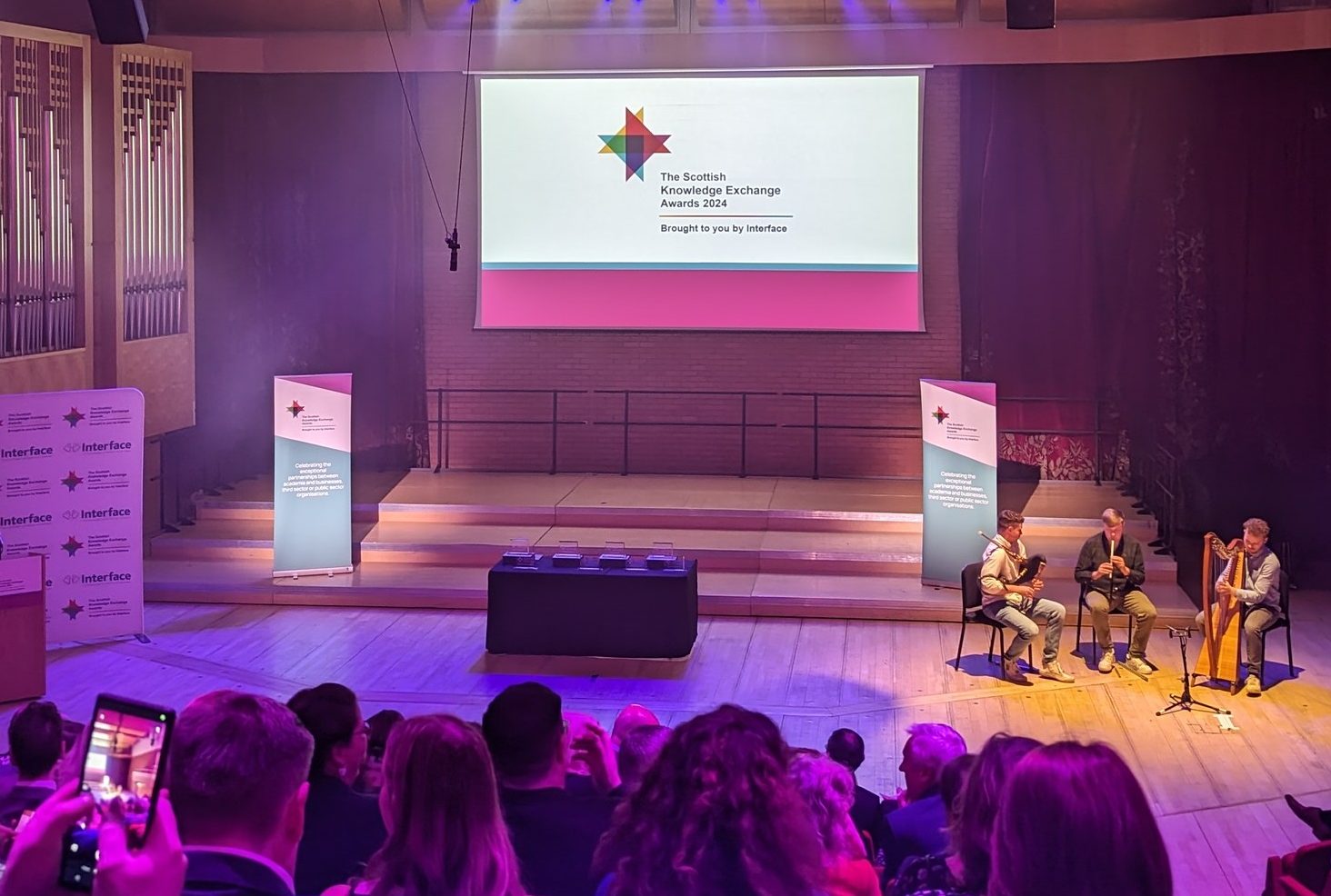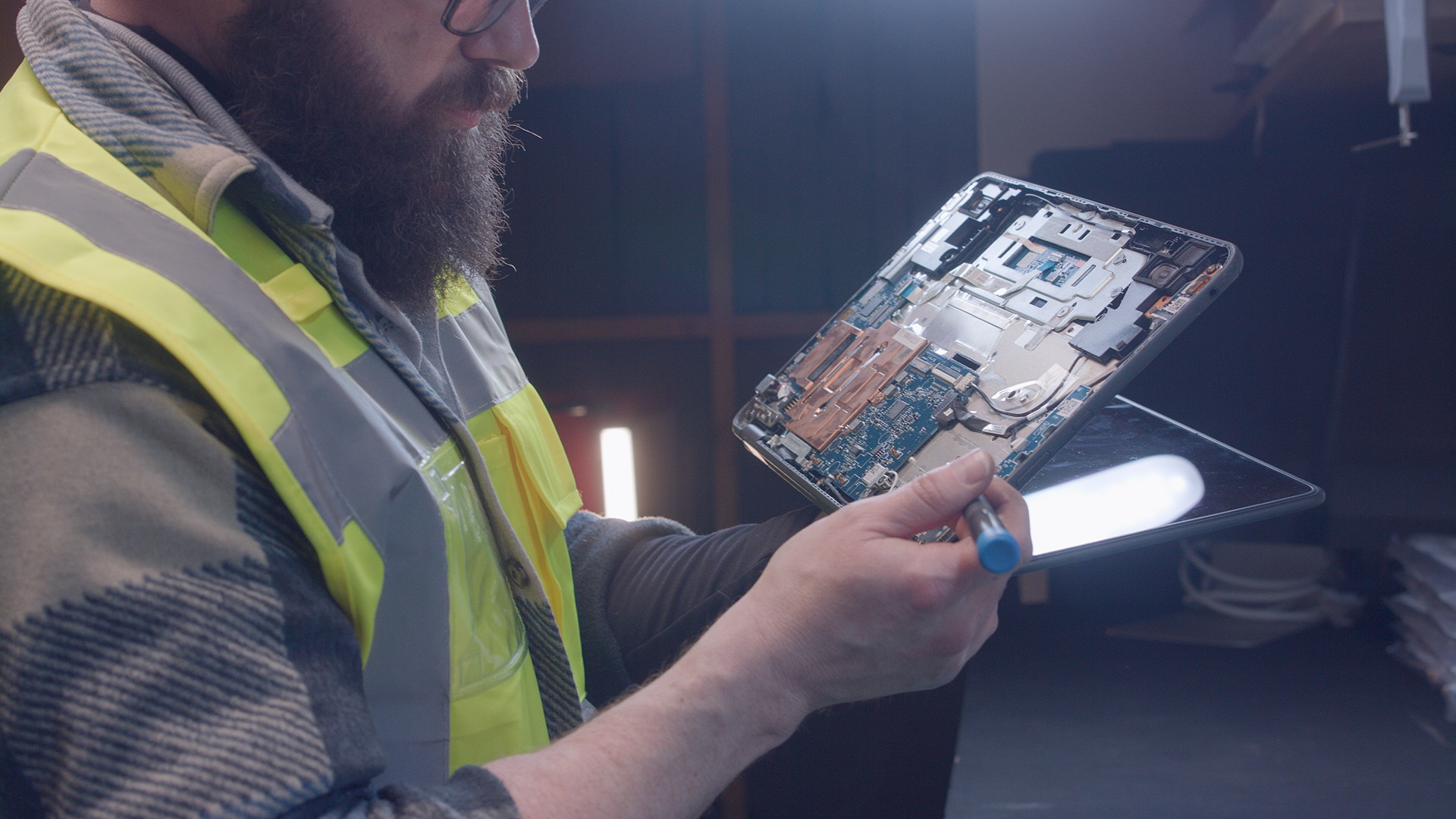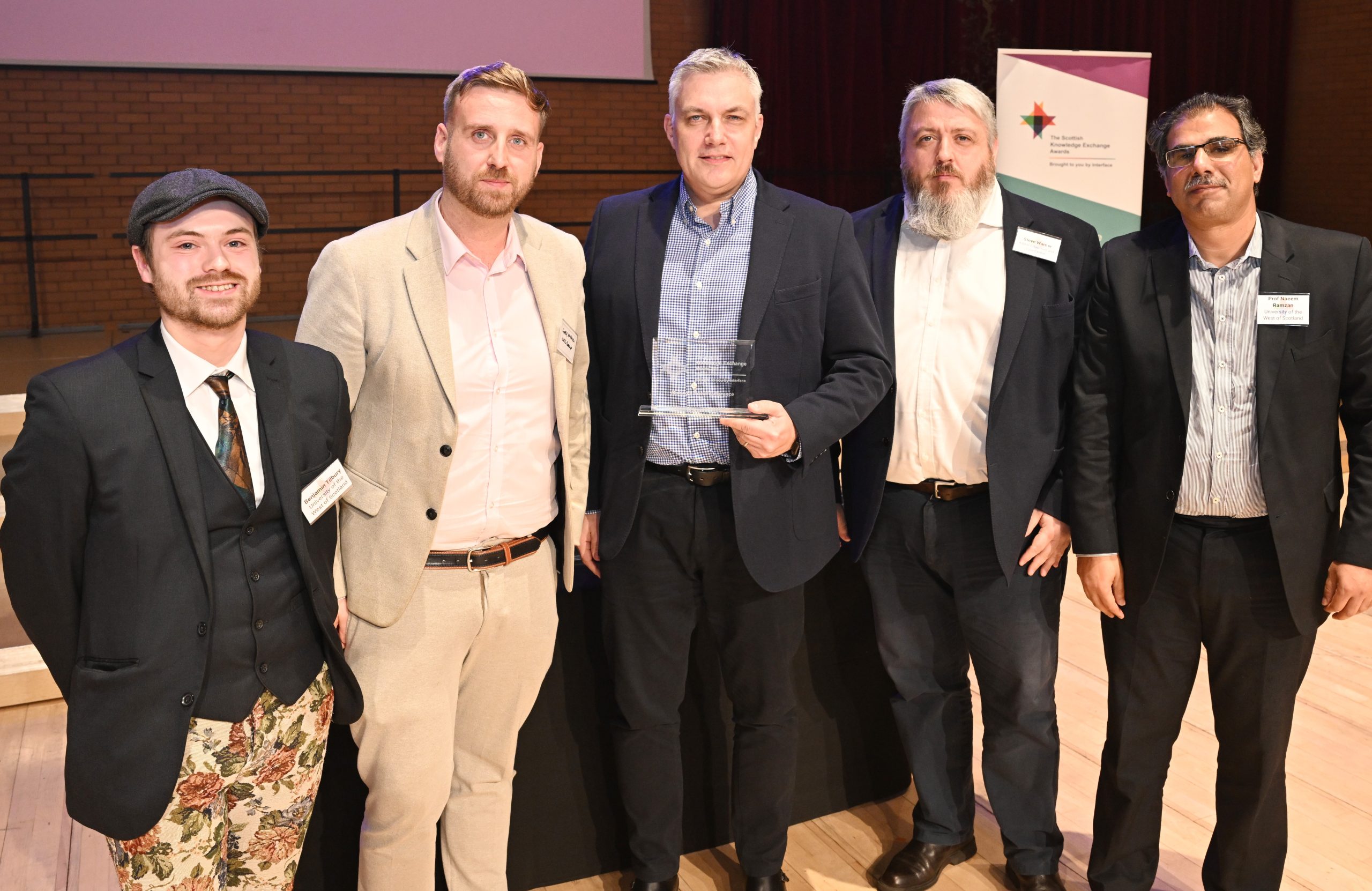Blog
Help for company’s designs on Europe

Stuart Bain, CEO of Design LED, and a member of the Interface Strategic Board has tapped into academic expertise over a number of years to help develop his business.
From student projects to accessing funding, Interface has supported Design LED Products Ltd on the business journey for more than 10 years. Stuart joined the Strategic Board of Interface in 2018.
What made you first tap into academic expertise to help your business?
As a start-up, we had an urgent need to present our technology to the market in real products, but to actually make physical things, or pay an agency to do bespoke renders was really expensive and took a long time. Interface helped us to identify expertise in Glasgow Caledonian University and Glasgow School of Art to develop designs showing the functionality of our products. The decision to bring in a student, hungry to impress in a first role, has been pivotal in our growth.
It helped your business ultimately secure investment from a major German company – was that the goal for your business working with a university?
At the time no, but the quality of work produced, through the academic collaboration, was so good we used it in all our investment pitches. It was a great tool to help investors and a fairly sophisticated technical audience, visualise what the technology could really do for them which was key in their decision to invest. When we were looking for investment, we received valuable support from Interface which identified funding through the Horizon 2020 Engagement Scheme, which we successfully secured with the help of the University of Strathclyde’s Intelligent Lighting Centre. This funding enabled us to build strong relationships with European partners and meant we were able to take the collateral which the students helped to produce to a major event in Germany to meet potential partners.
What have you learned about academic collaboration from your own experience?
If you have an open mind as an employer and give the collaboration room to evolve, it can be really valuable to have some fresh ideas and energy in the team. And it works two ways, the student we engaged with now has his own design agency and used the work with our company as collateral to secure future clients. Since this initial engagement, we have made graduate recruitment key to our growth plans.
You are now on the Interface Strategic Board, what challenges do you see for the continued step change to stimulate more business-academic collaborations?
Interface is hugely successful already, so the main challenge is how to take a very well performing organisation on to even higher levels of impact. Key to that will be clarity of message in a very busy and often confusing landscape of support for start-ups and SMEs, preferably with 99% less anacronyms, IMHO!
What can support organisations do to make it easier for businesses to collaborate to develop products, processes and services?
Key to any start-up or SME is time to market. All collaboration partners need to recognise this and configure their resources and propositions accordingly. Also, there is often a focus on physical products and processes when it comes to innovation and collaboration, but services and social enterprise can also benefit hugely from academic collaboration which is often forgotten.
To find out more about collaborating with a university or research institute please contact us.



